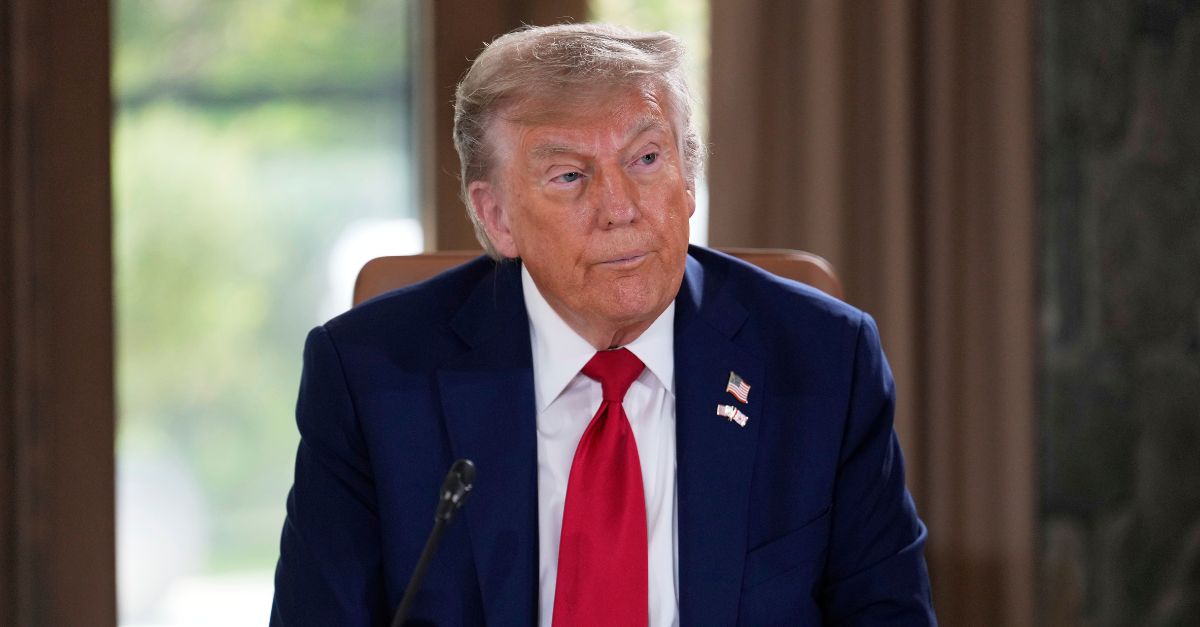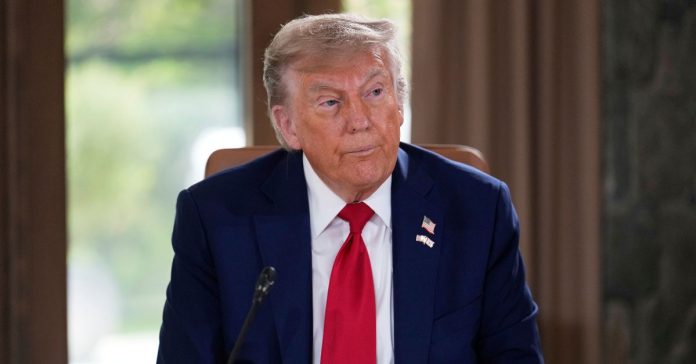
President Donald Trump participates in a session of the G7 Summit, Monday, June 16, 2025, in Kananaskis, Canada. (AP Photo/Mark Schiefelbein)
The Trump administration provided incorrect information to a federal judge in a recent case about the summary deportation of immigrant children, according to a whistleblower complaint.
On Tuesday, in a two-page letter, attorneys representing the whistleblowers – whose names are being withheld for now – allege Office of Refugee Resettlement (ORR) Acting Director Angie Salazar made “inaccurate” representations in a declaration filed in a lawsuit over “planned flights to return hundreds of children to Guatemala.”
“Specifically, Salazar stated that 327 children identified for return to Guatemala had been screened according to a list of criteria that ensured, among other things, the children would not be subject to child abuse and neglect, including human trafficking, torture and other forms of violence, upon return to Guatemala,” the letter reads.
The whistleblowers say that”s just not true.
Love true crime? Sign up for our newsletter, The Law&Crime Docket, to get the latest real-life crime stories delivered right to your inbox.
Based on internal ORR data, the whistleblowers “reasonably believe” that “at least 30 and possibly more” of the children to be deported “have indicators of being a victim of child abuse, including death threats, gang violence, human trafficking and/or have expressed fear of return to Guatemala,” according to the letter. And in some cases, the children are said to fear “harm and threats from their parents.”
In addition, Salazar “knew or should have known of the inaccuracies in her declaration,” the whistleblowers’ letter claims.
The underlying litigation was filed late last month.
In their 25-page complaint, the plaintiffs purport to represent a class of “hundreds of Guatemalan children at imminent risk of unlawful removal.” The lawsuit is premised on a litany of statutory and constitutional violations. Chief among those allegations is a claim the Trump administration’s summary deportation plan “violates the Trafficking Victims Protection Reauthorization Act” by denying the children individualized access to counsel and “their day in court.”
The lawsuit also says the plan stands to violate a statutory mandate to provide “safe and sustainable repatriation and reintegration.”
On Sept. 6, Salazar filed an eight-page declaration, attesting that “ORR reviewed the children’s cases for claims of fear of persecution” and “327 children were determined to be ultimately eligible in the end.”
The declaration goes on to say that ORR used a “best interests framework in determining what constitutes an ‘appropriate case’ for repatriation within the meaning” of the statute governing children’s affairs within the ORR. This analysis, Salazar said, determined “it is appropriate and in the best interests of these children to reunite these children with their parent or legal guardian in their home country.”
Again, the whistleblowers strongly reject those conclusions.
“The whistleblowers obtained information they reasonably believe demonstrates that many children identified for repatriation do not in fact meet the eligibility criteria based on ORR’s data; if confirmed, this would render this evidence provided to the court inaccurate,” the Tuesday letter – also filed as an exhibit on the case docket – reads.
The letter elaborates, at length:
By September 5, 2025, the day before Ms. Salazar’s declaration, at least thirty total, including 20% of a sample size of approximately fifty cases reviewed, had indicators of being ineligible for repatriation based on the excluding criteria. This data was noted and present in ORR’s database at the time of Ms. Salazar’s declaration.
These whistleblowers’ disclosures evidence violations of law, rules and regulations, abuse of authority and substantial and specific danger to public health and safety on a matter of urgent, and potentially life and death, importance.
Late Tuesday, U.S. District Judge Timothy J. Kelly, appointed by President Donald Trump during his first term, extended an extant temporary restraining order barring the planned deportations until 11:59 p.m. on Sept. 18, at the absolute earliest. The court tersely explained the two-day extension was based on “good cause.”

